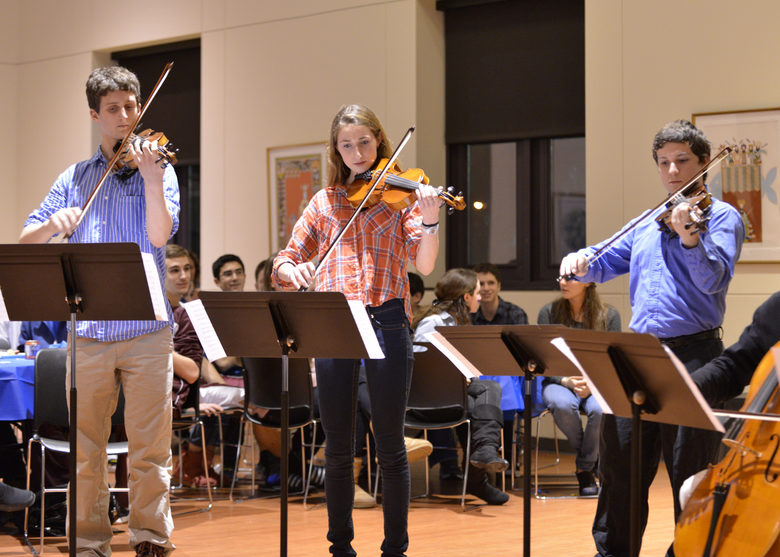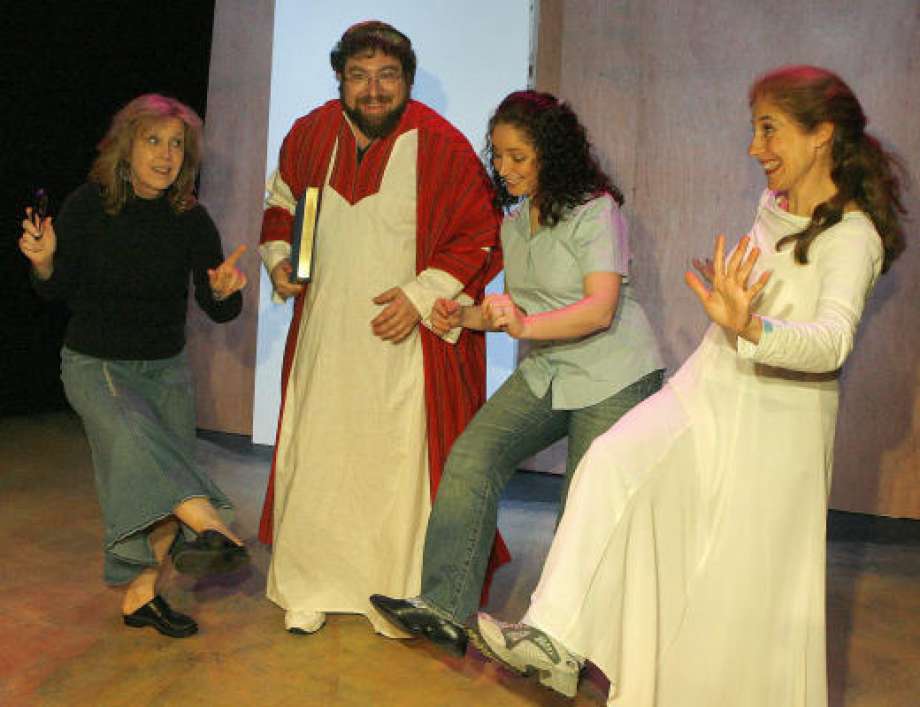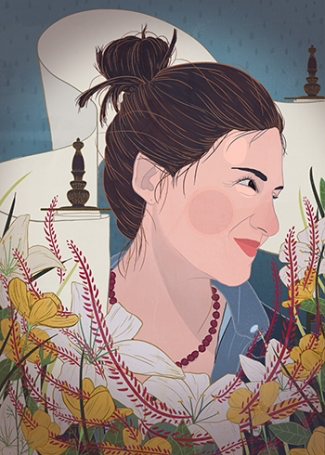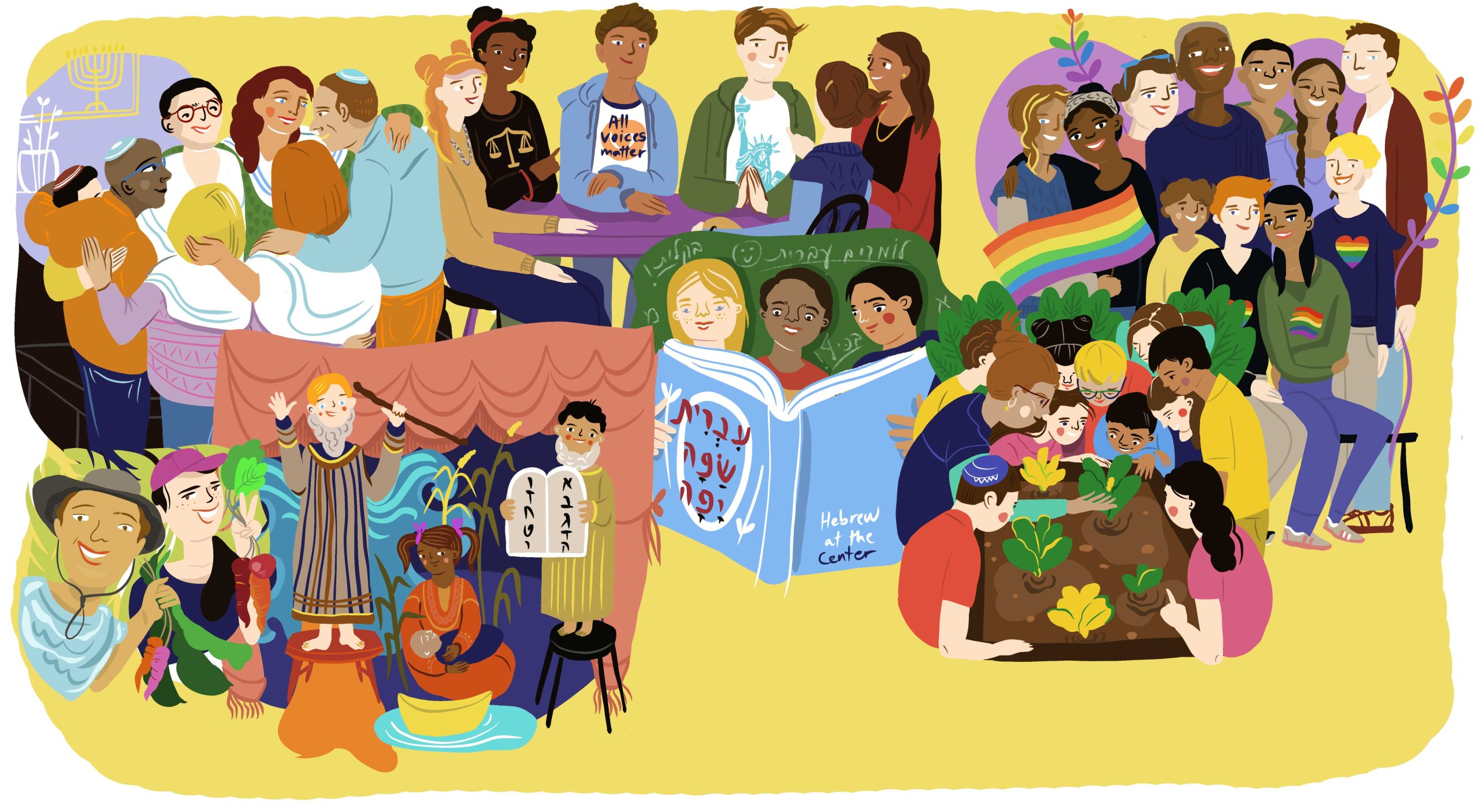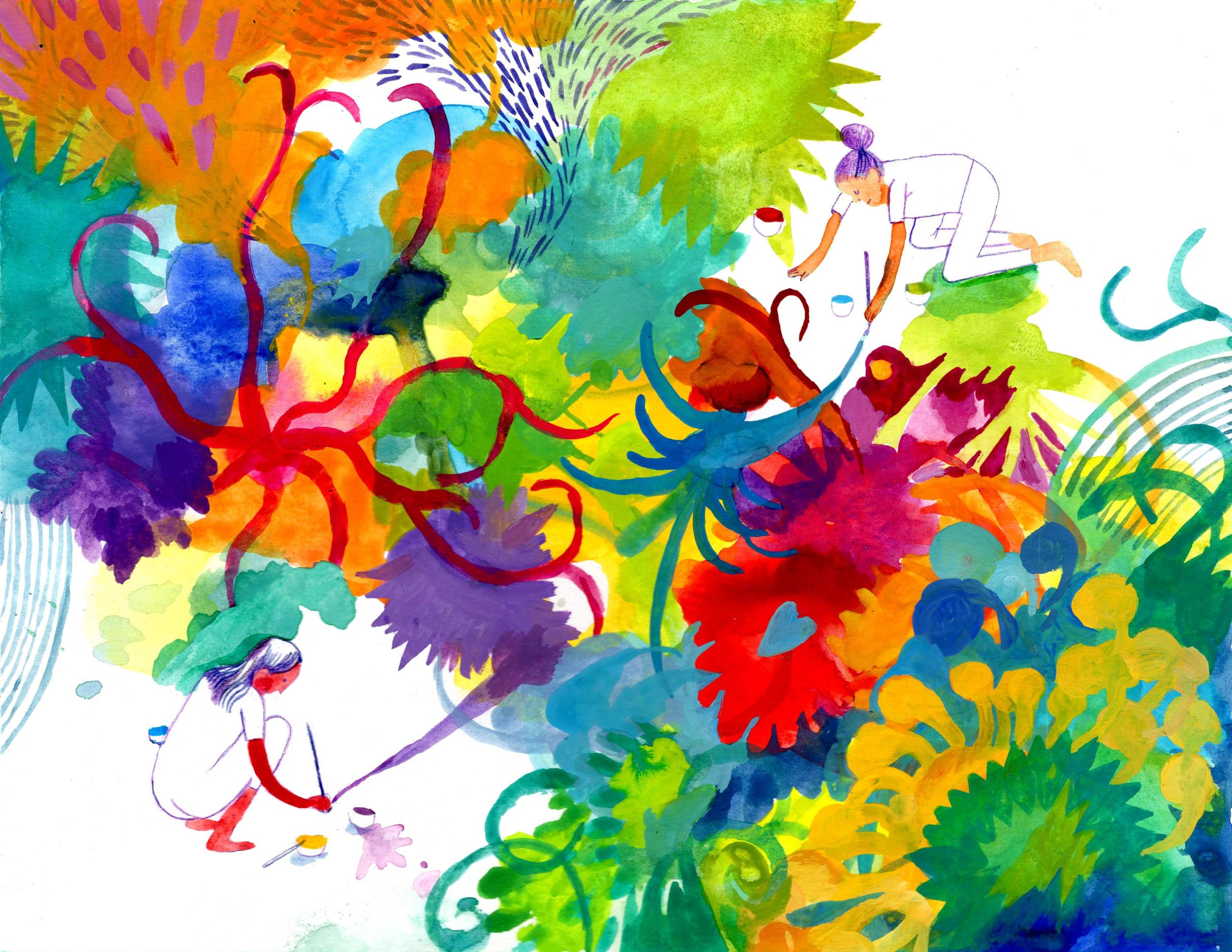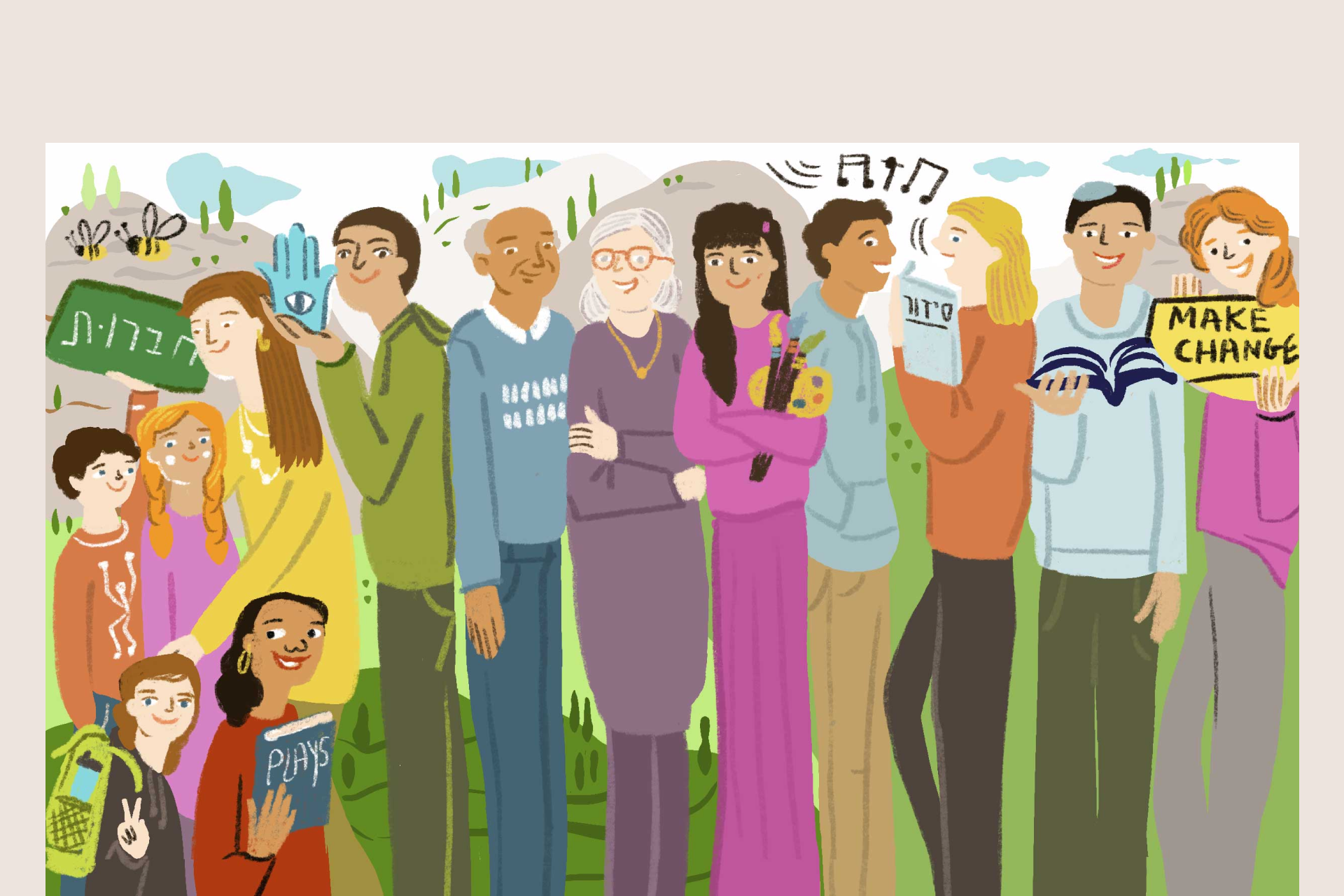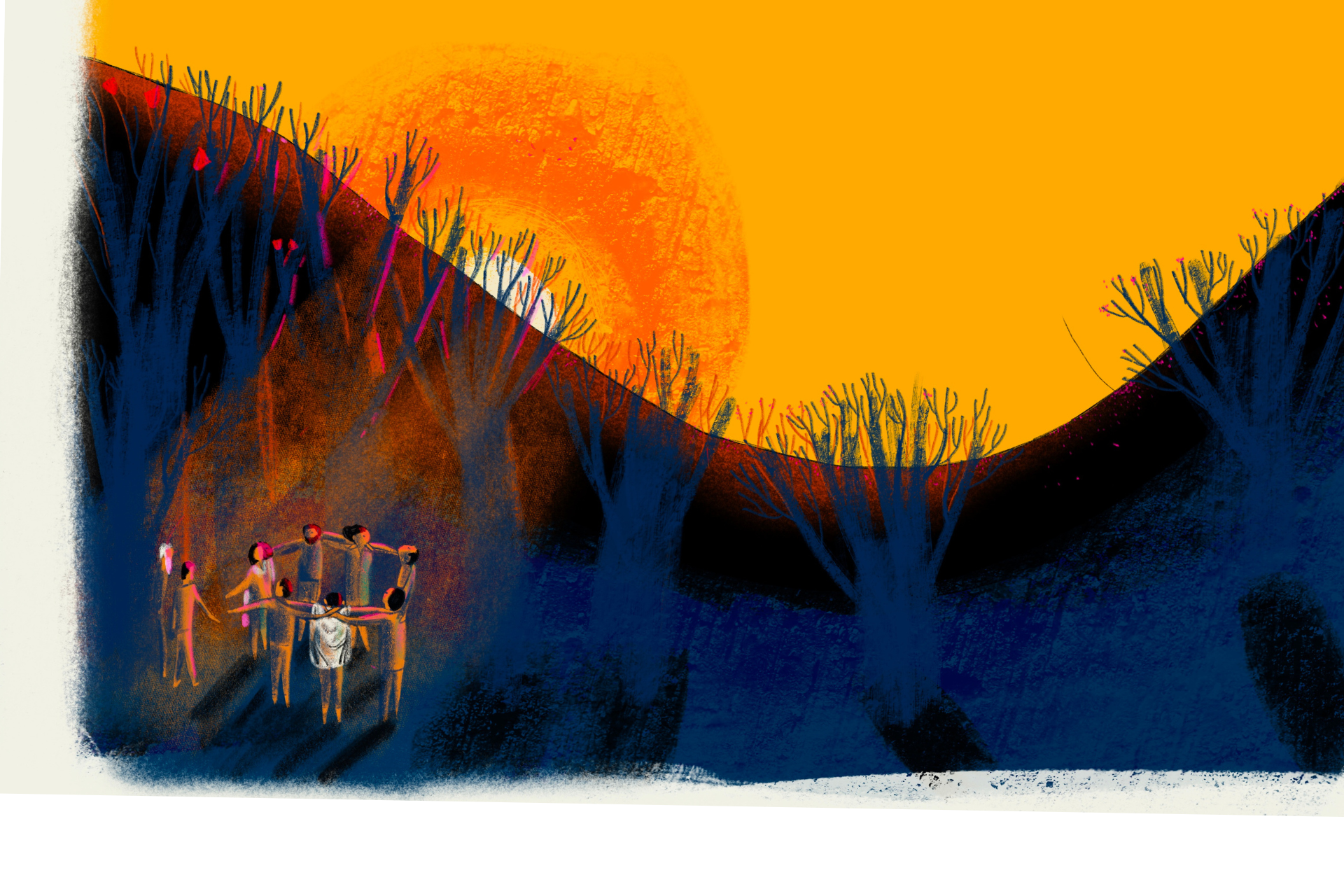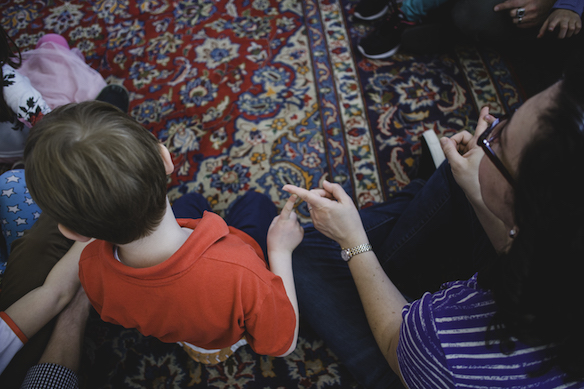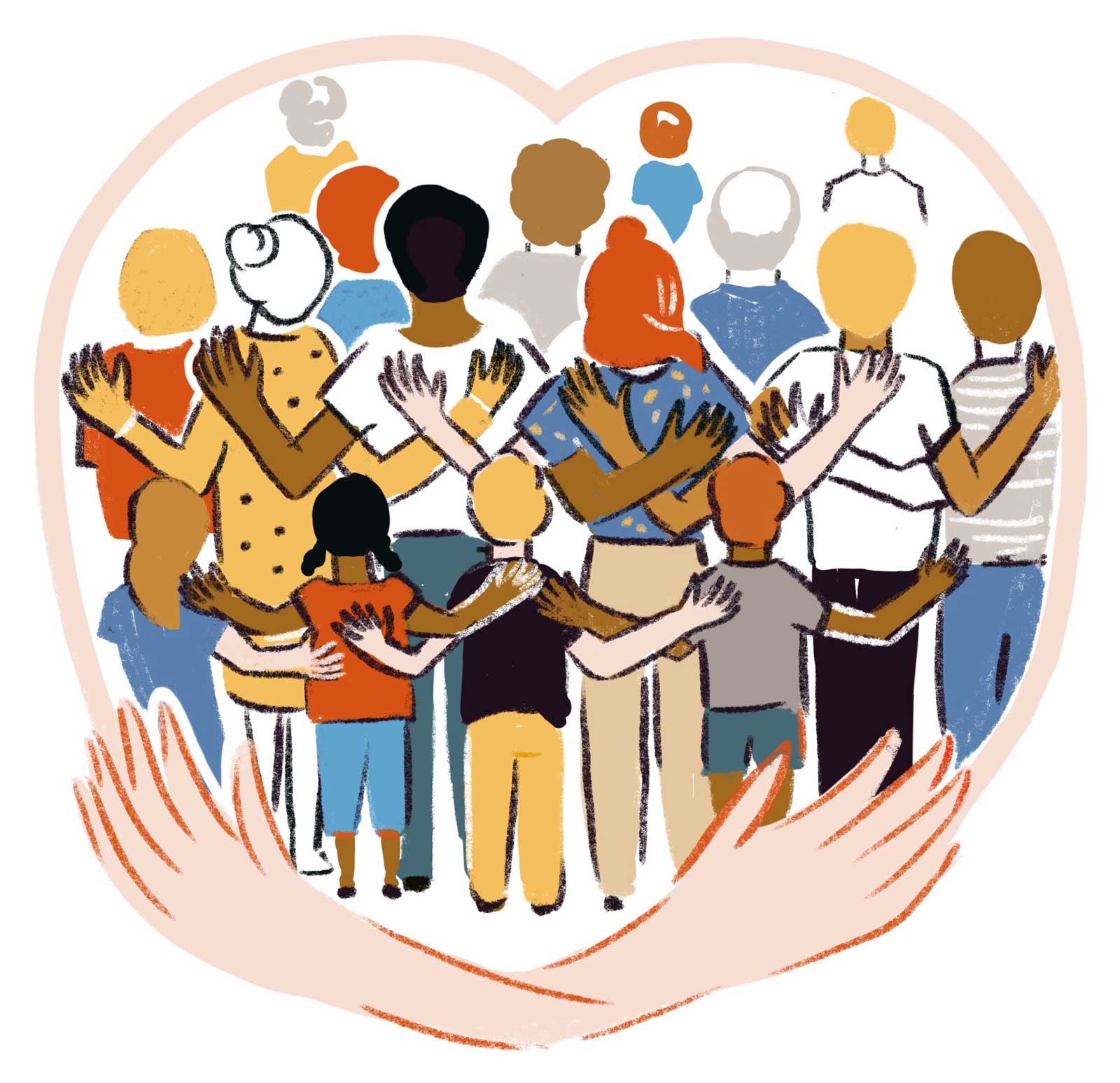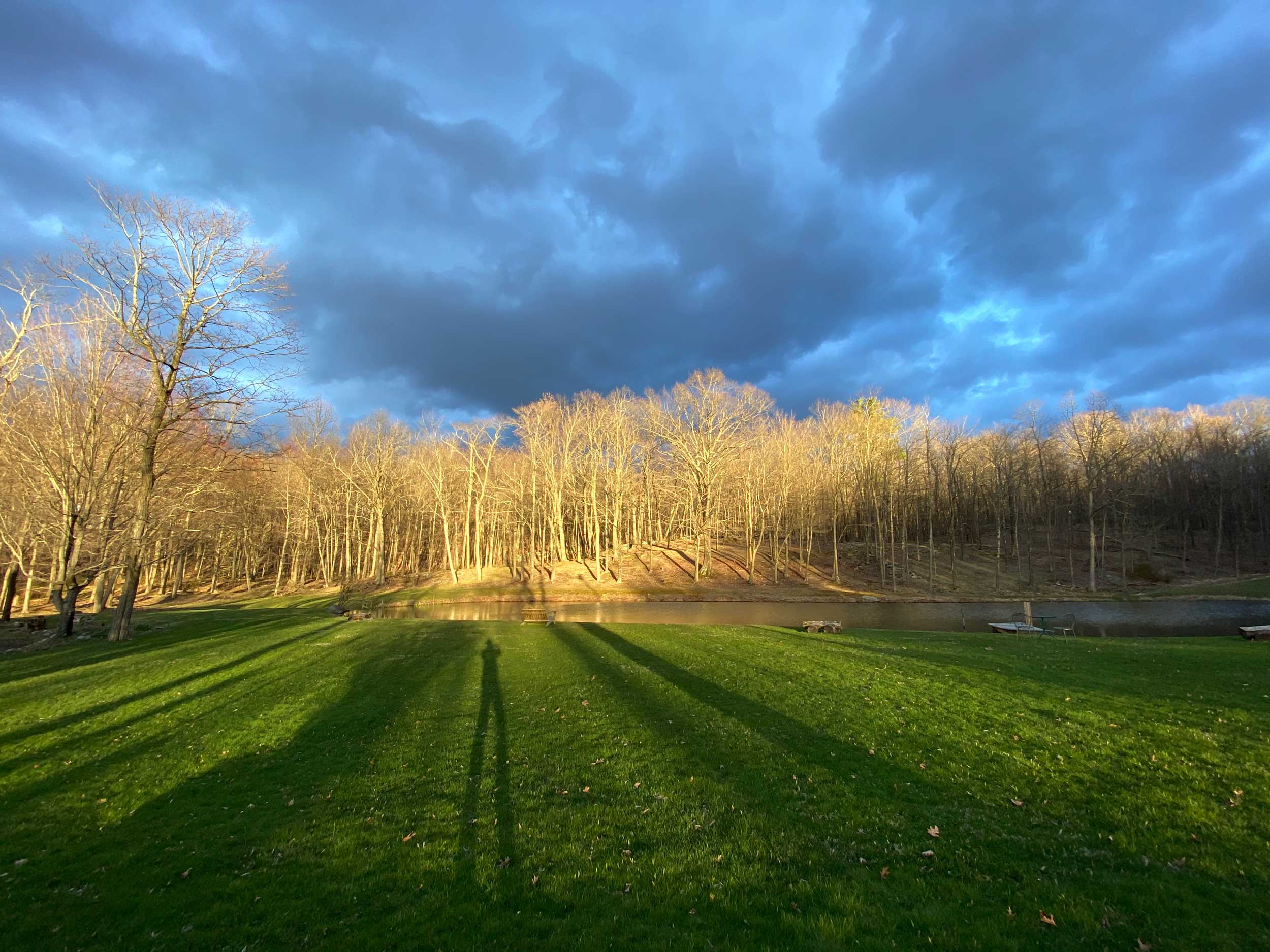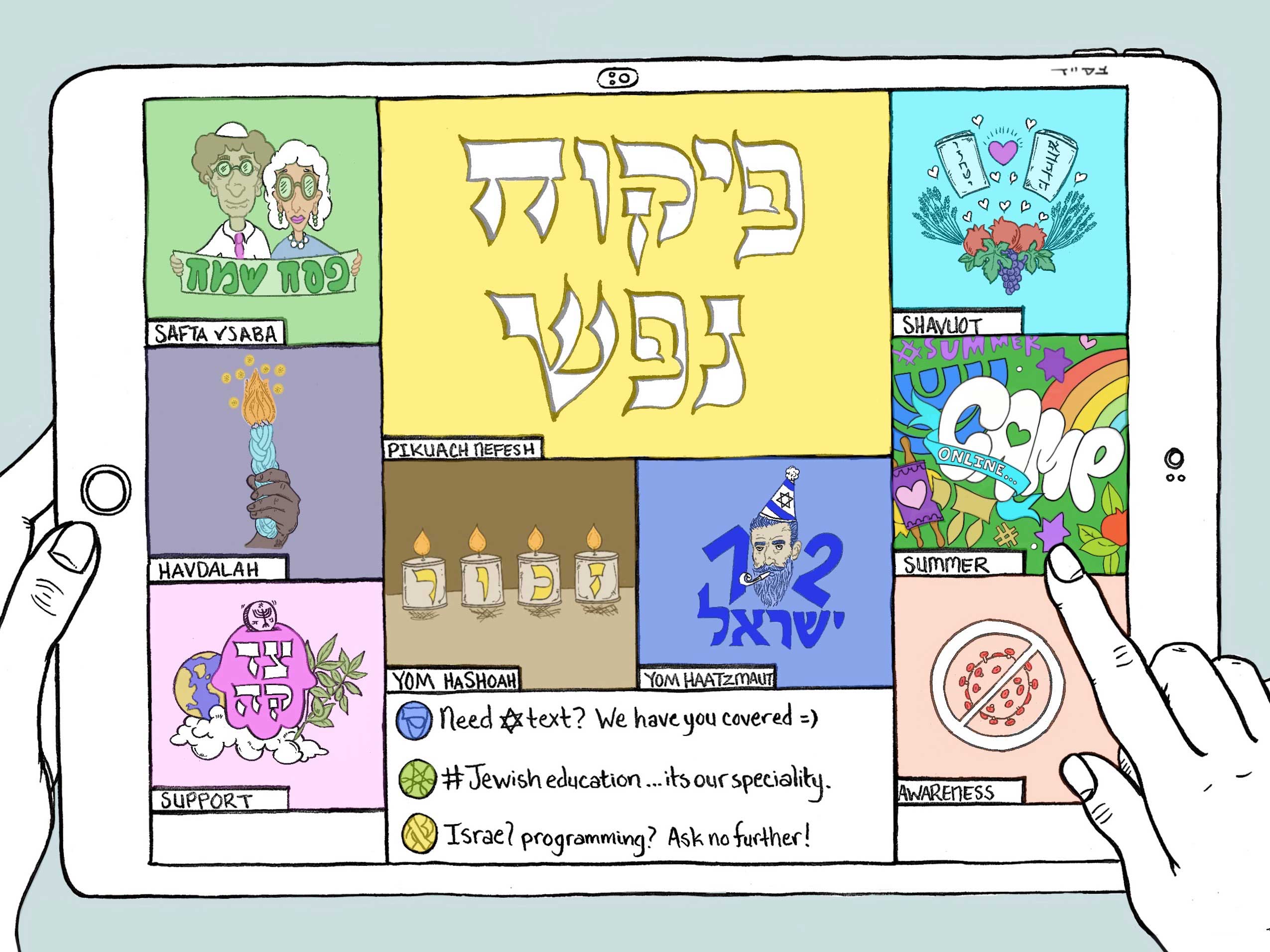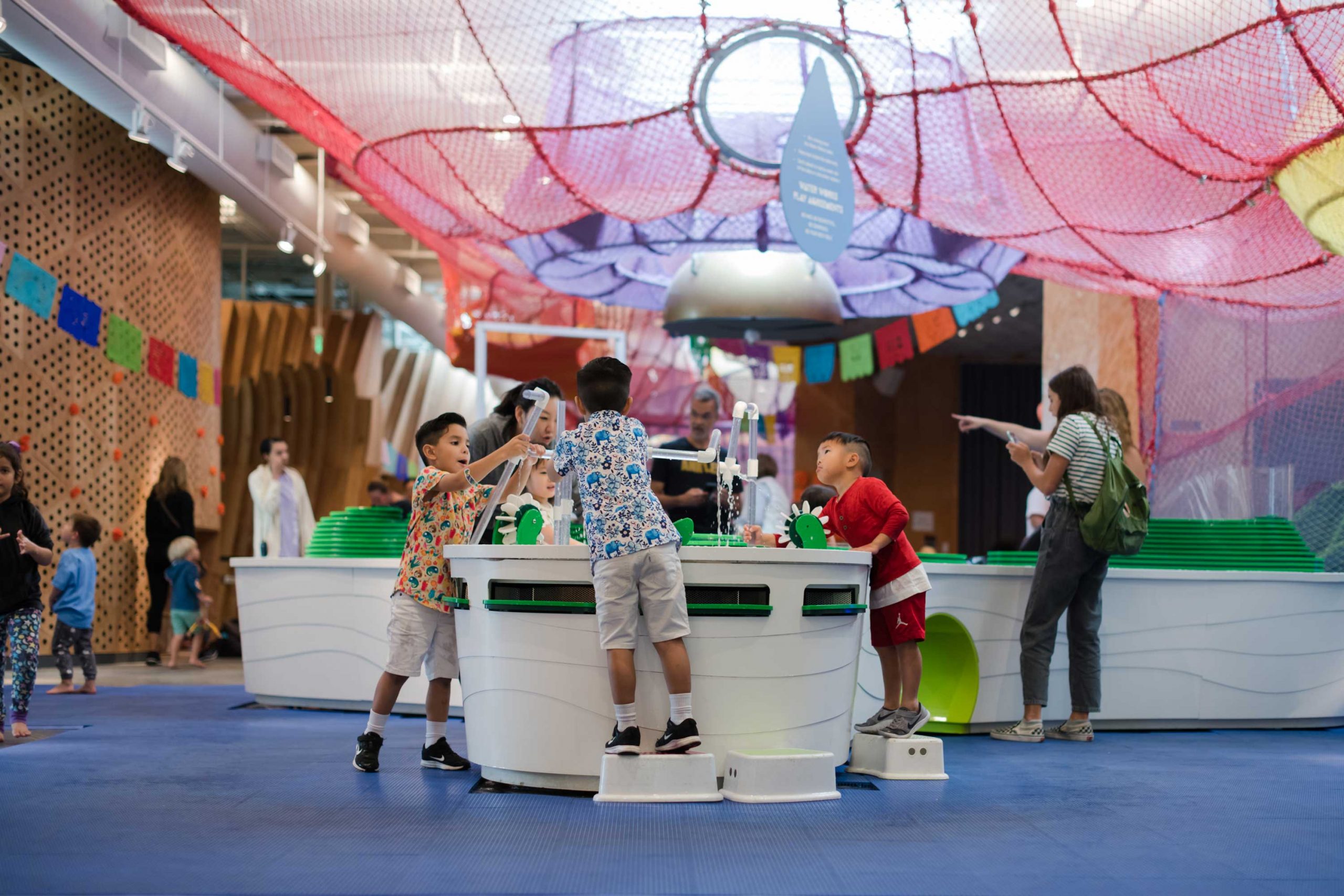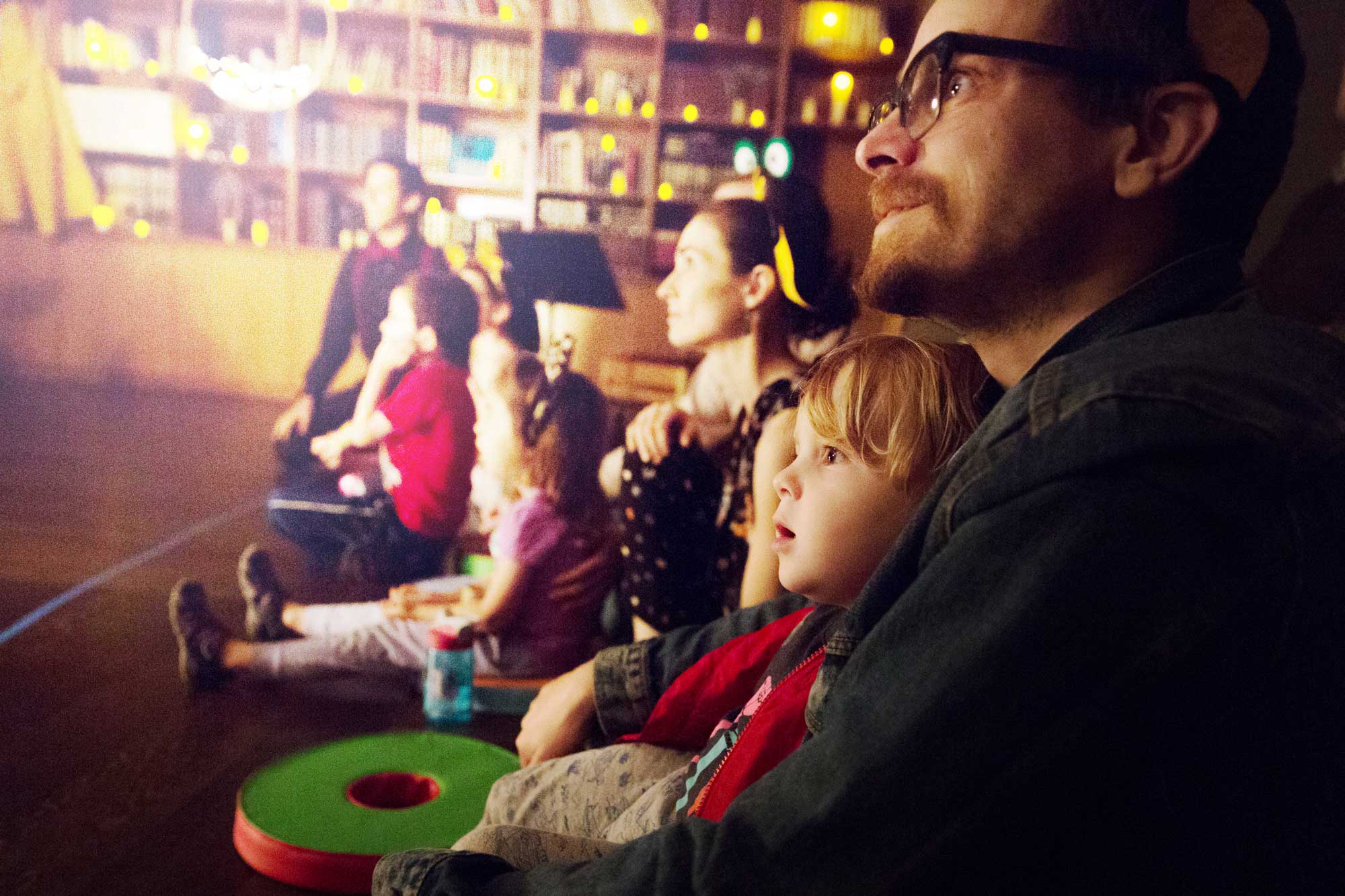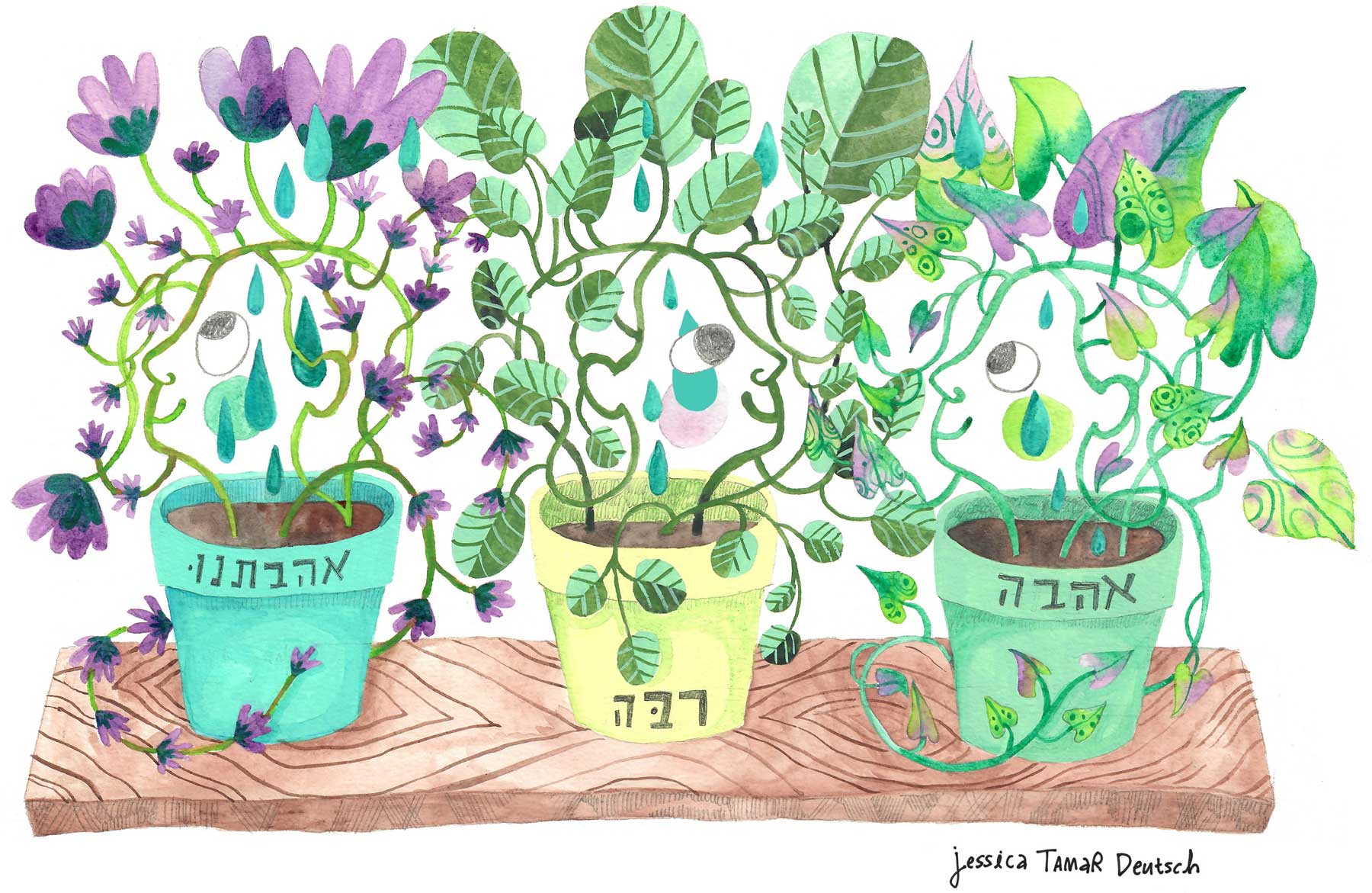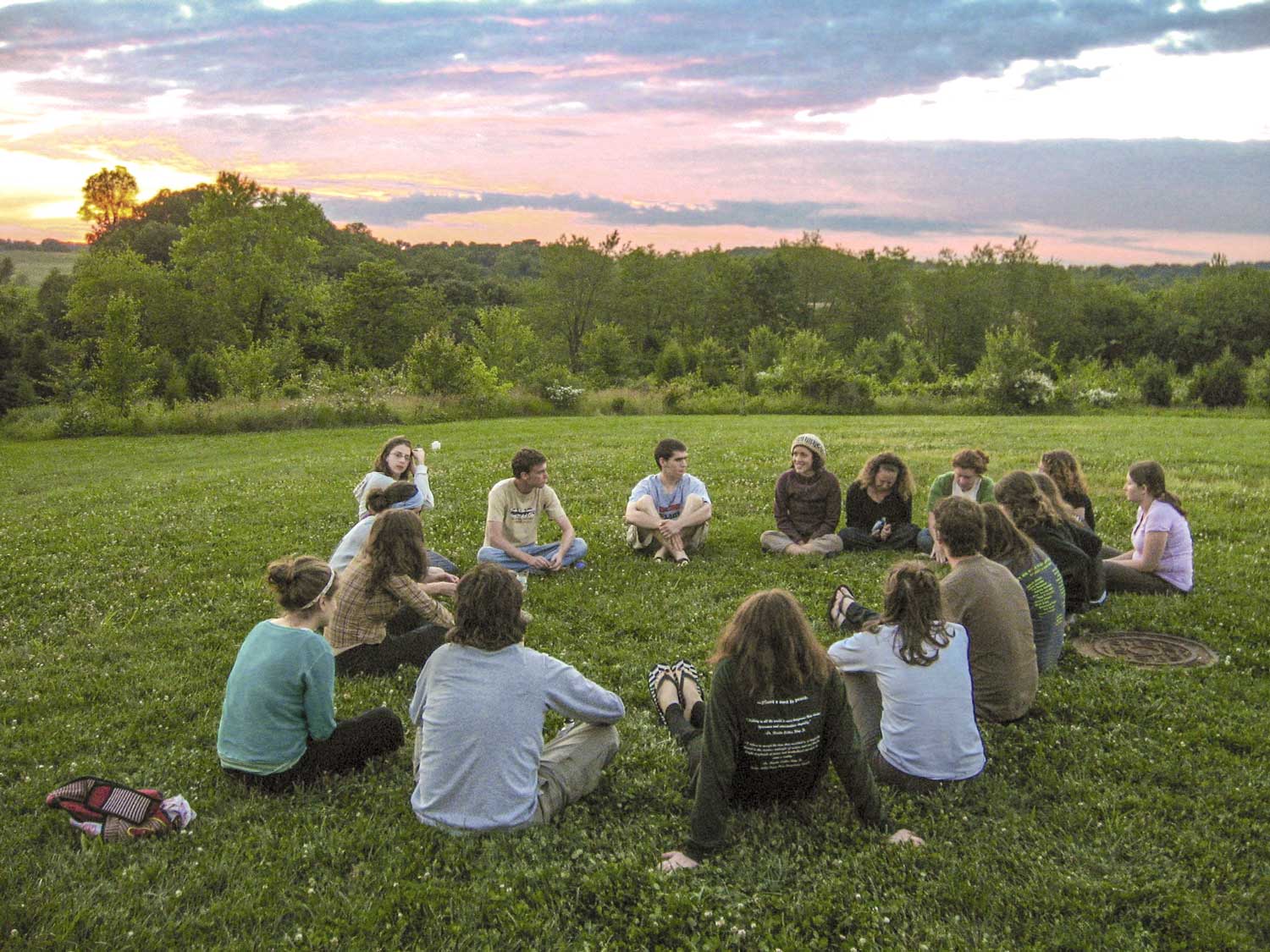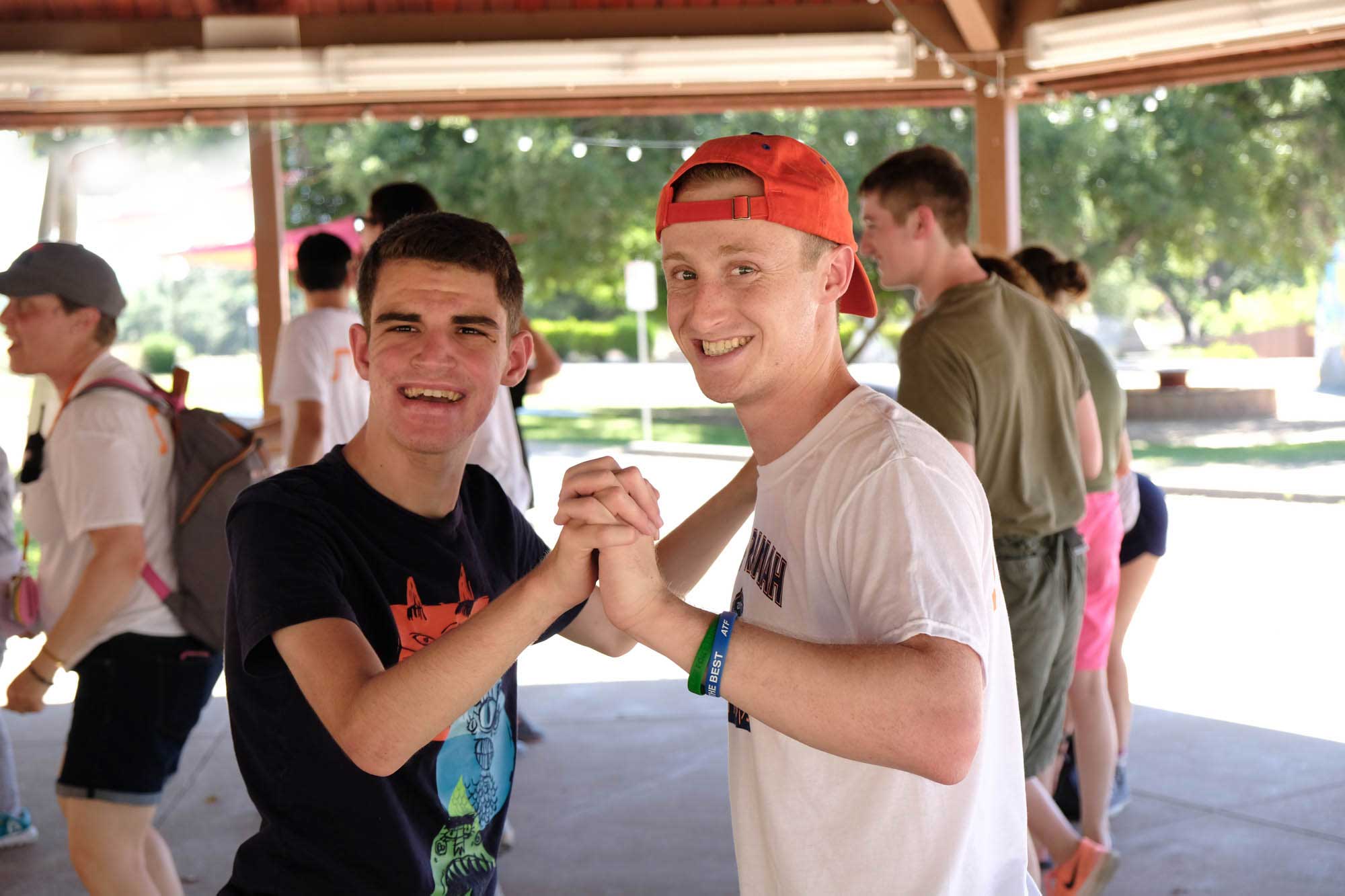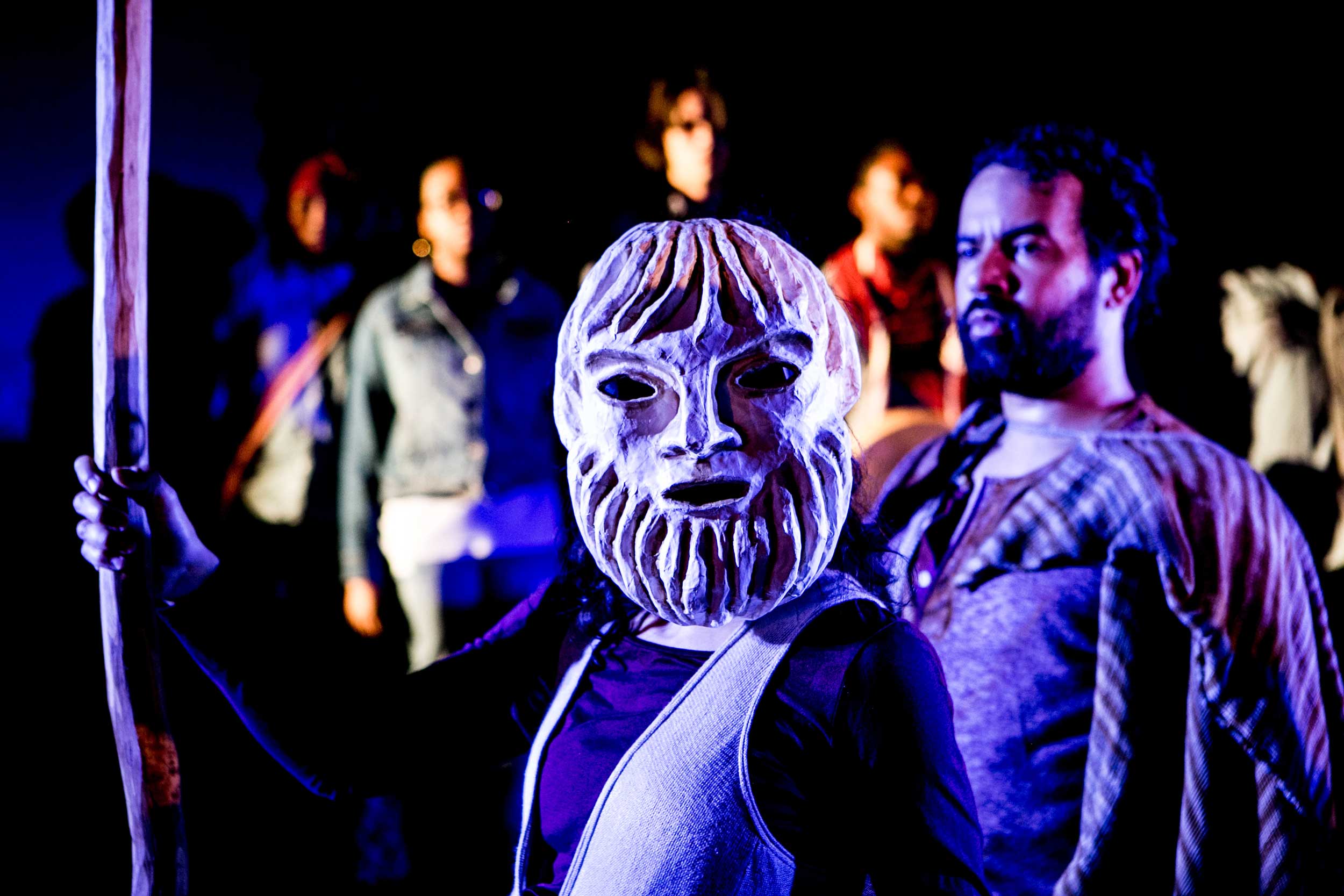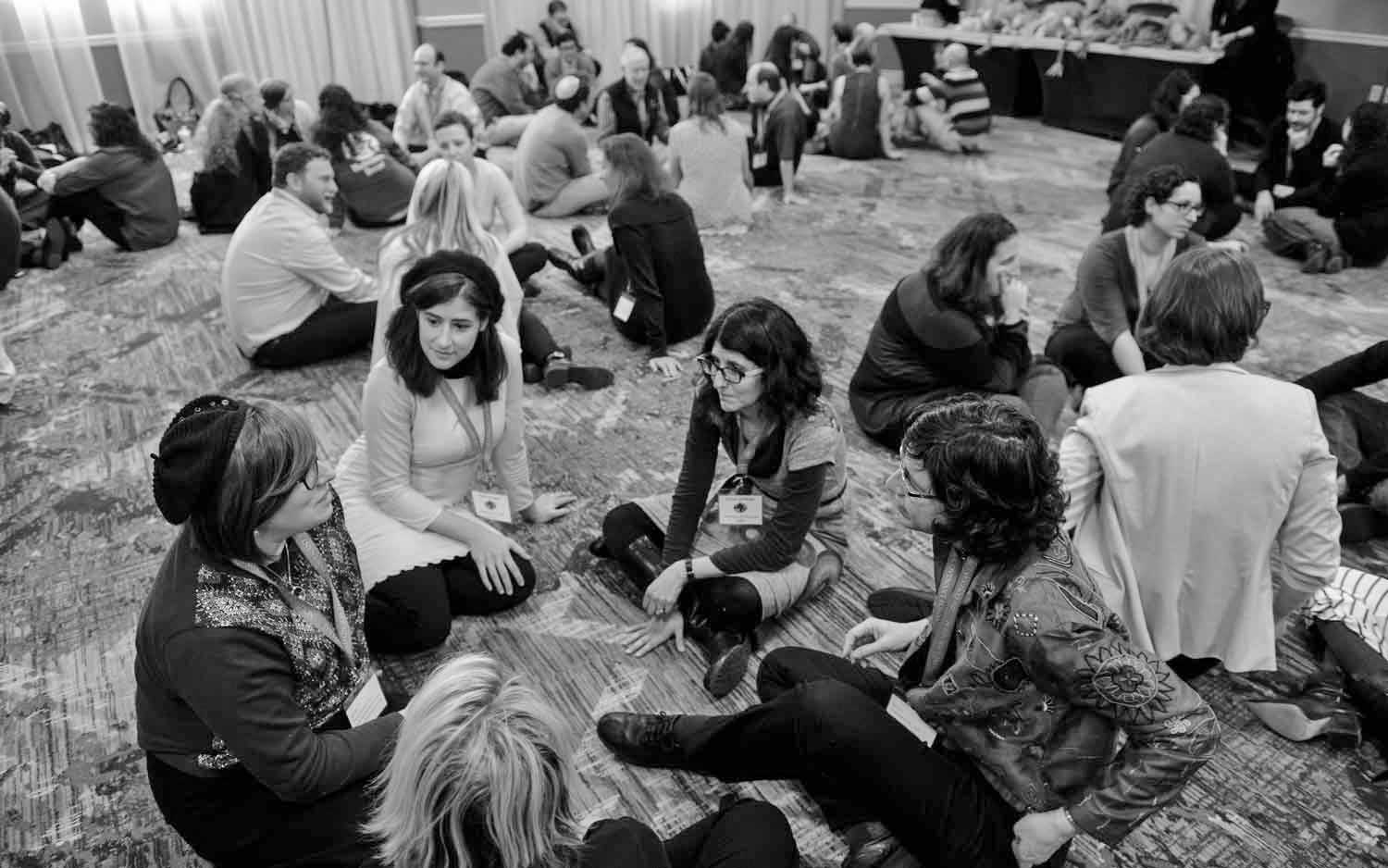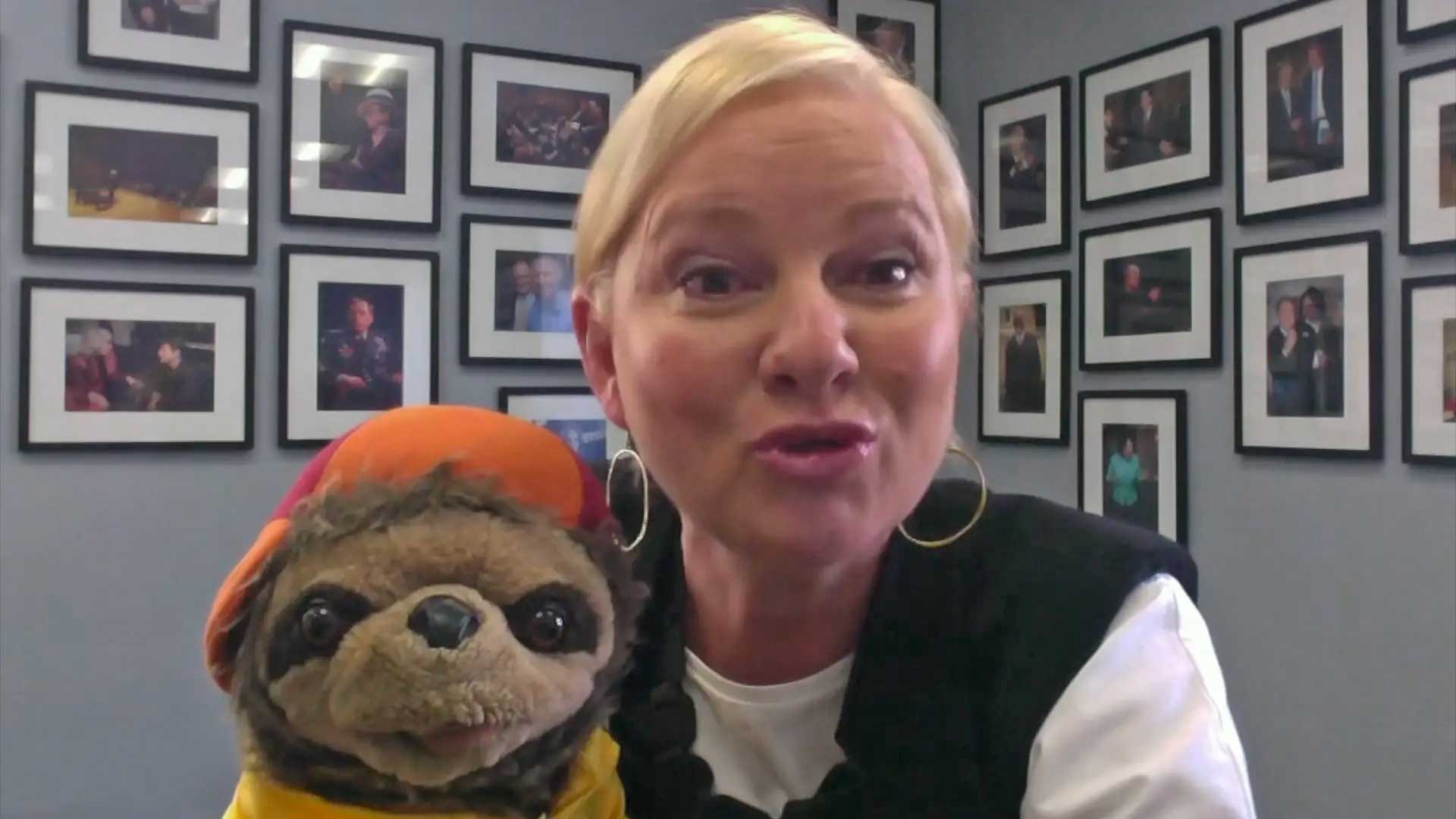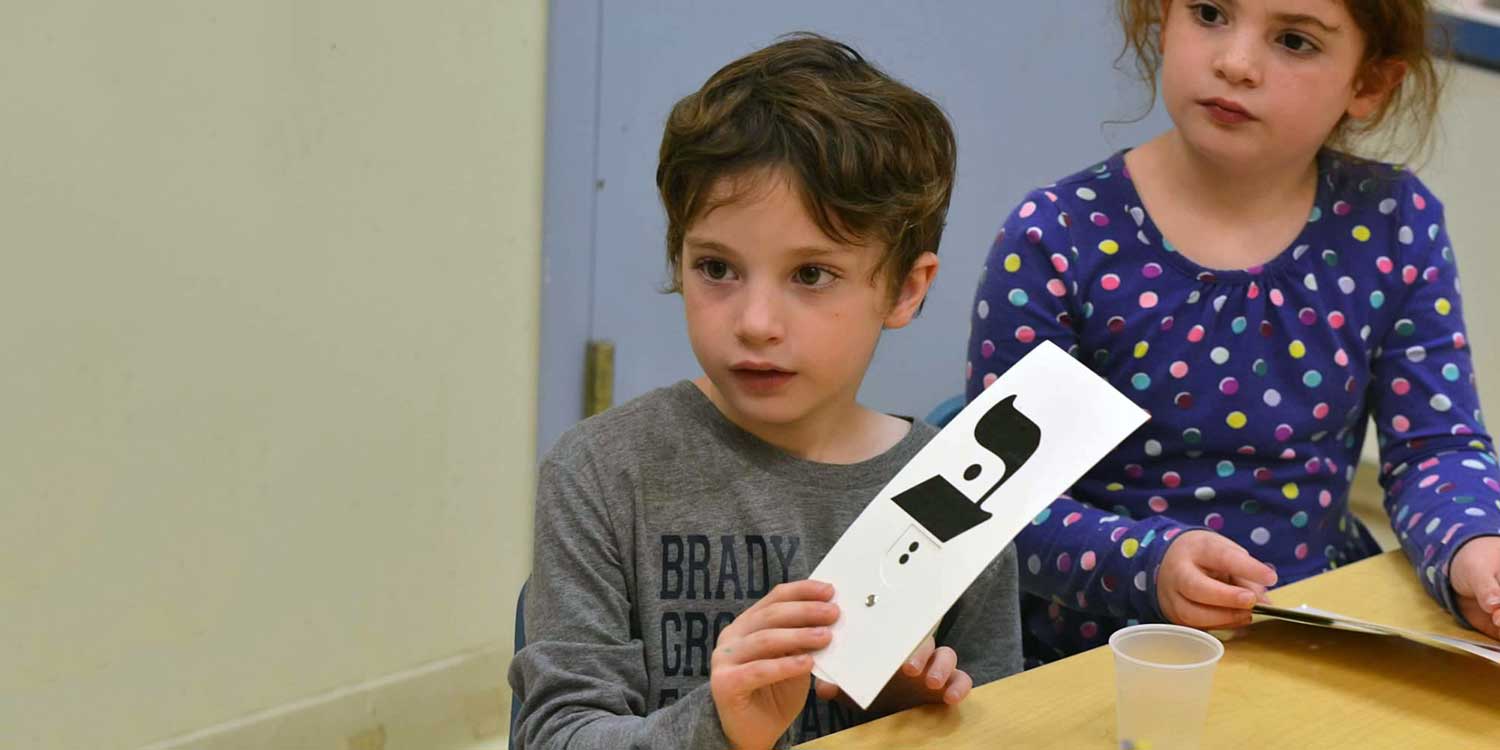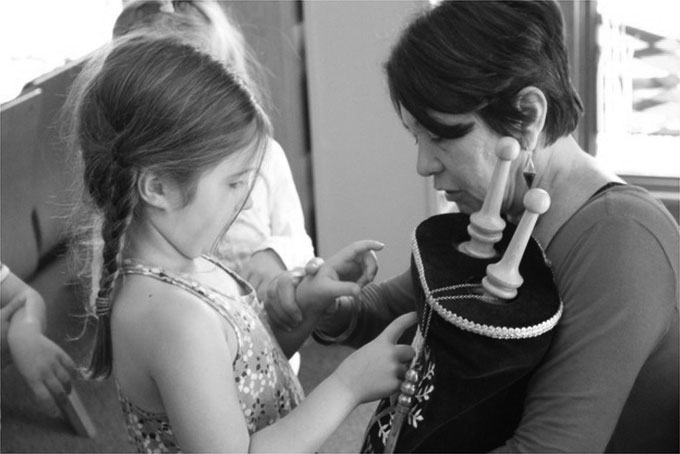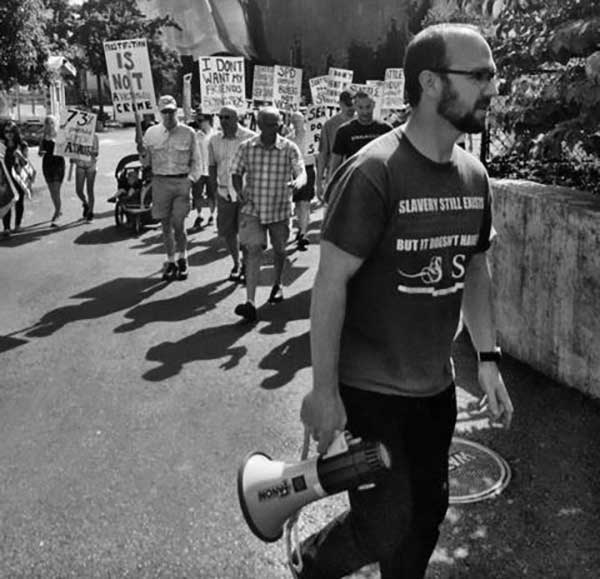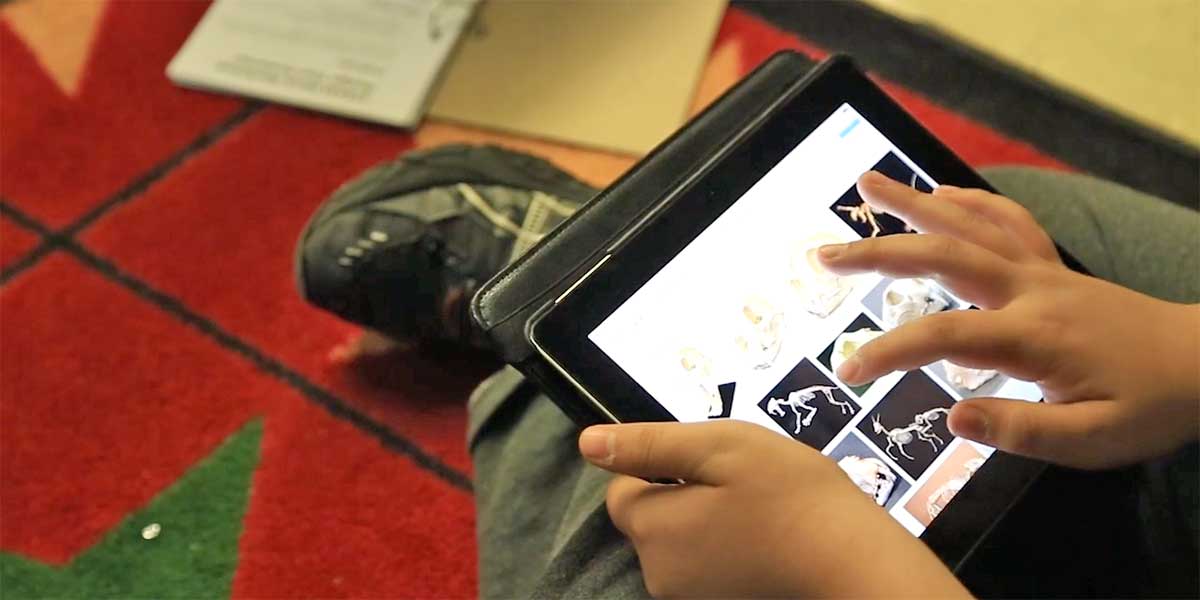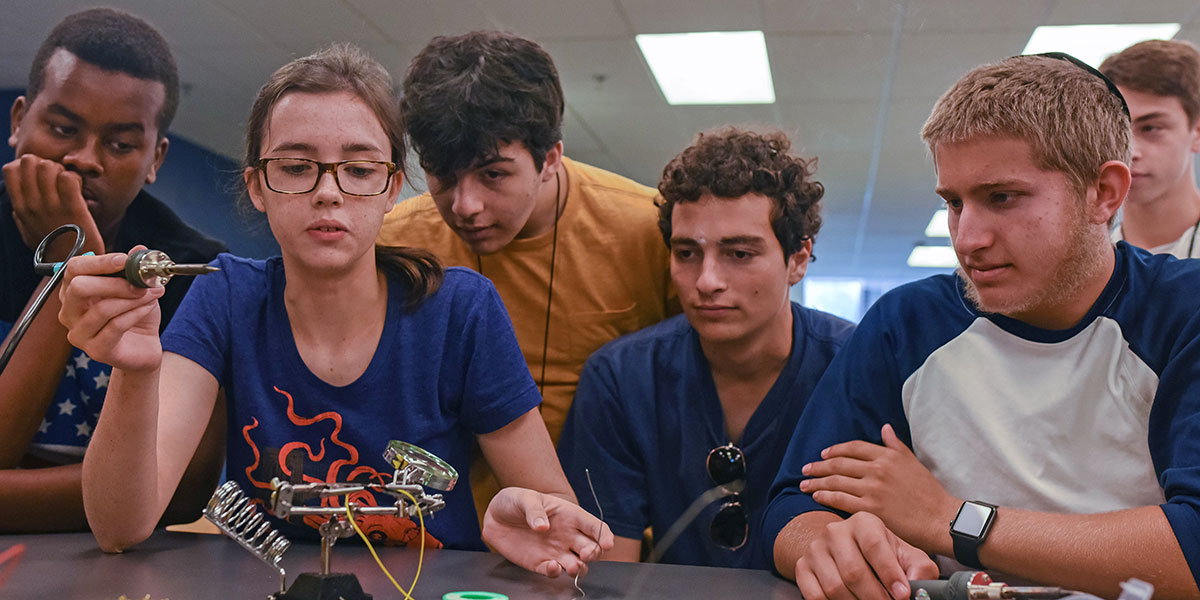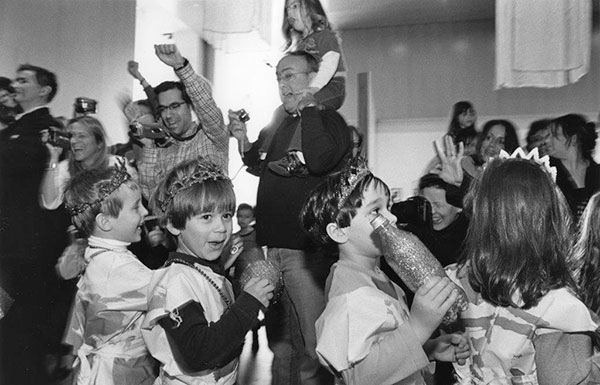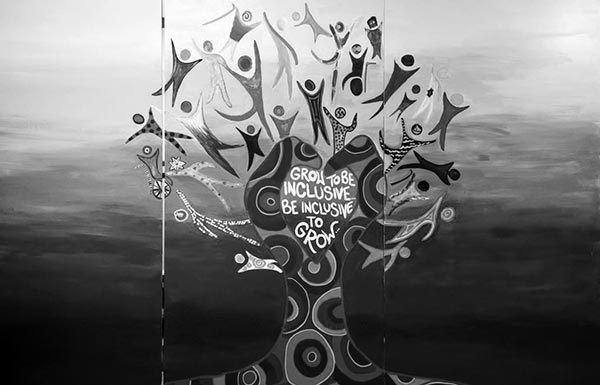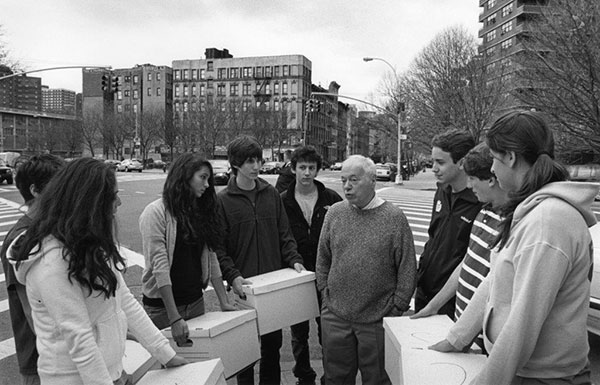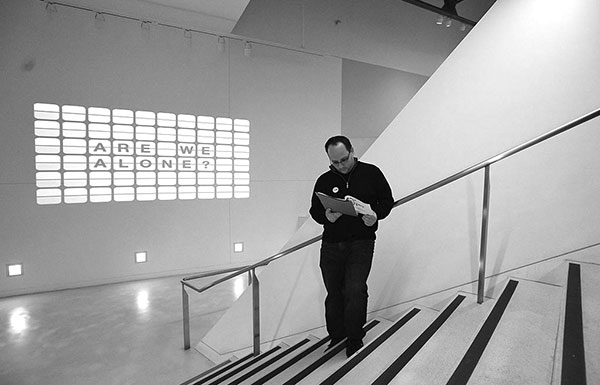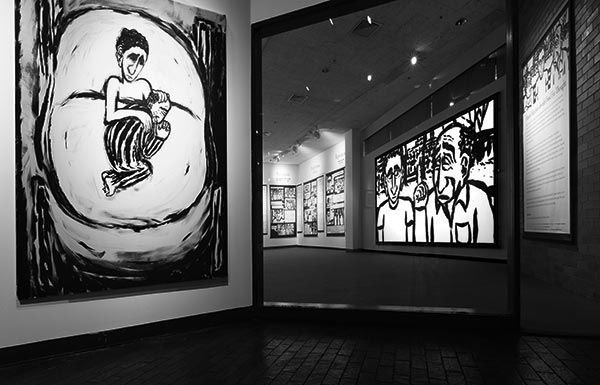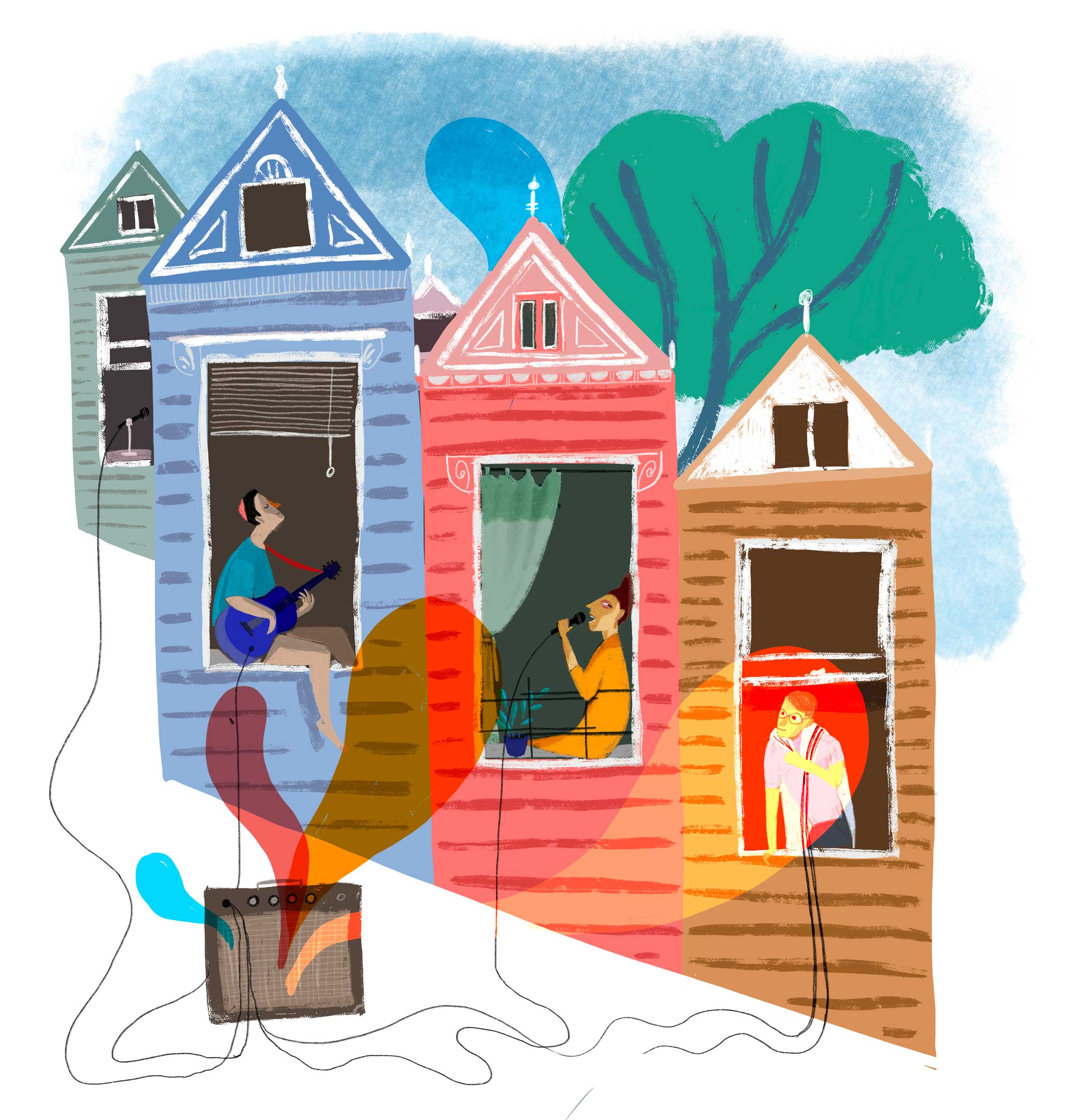
ARTICLE Ensemble Judaism at The Kitchen
On the edge of Bernal Hill, an outcropping of nature adjacent to San Francisco’s bustling Mission District, an experiment in Jewish prayer was about to start. Rabbi Jessica Kate Meyer, the chazan at The Kitchen, stood in front of a microphone wrapped in a sweater and scarf against the typical bluster of a summer afternoon. A dozen feet away on a folding chair was legendary Bay Area guitarist John Schott, part of a small group of professional musicians who help lead Shabbat services for the nine-year-old congregation. Sitting in between them was congregant Aaron Danzig, his guitar and oud at the ready, and in whose backyard this new approach to Kabbalat Shabbat was taking place.
At 6 p.m., around 150 people—Kitchen congregants and friends from around the Bay Area and across the country—joined by Zoom. It was the day after Tu B’Av, the holiday in which tradition encouraged young people to go out dancing in the fields. In that context Rabbi Meyer evoked the presence of the Baal Shem Tov, who drew inspiration from the energy and sounds of nature.
As the music began, Meyer gave permission to everyone watching to “find your voice” before beginning Shiru L’Adonai: Sing to G-d a new song.
Almost a decade into a new kind of Jewish congregation, The Kitchen is making a bold push to place music and song even more strongly at the center of their program. This move—supported by a 2019 Covenant Foundation Signature Grant for their Community in Song program—reflects a deepening sense among Jewish leaders and educators that music is a key tool for building community, connection, and Jewish literacy.
The Kitchen is not alone in emphasizing the power of music and song for creating community. The congregation is part of a seven-member collection of innovative congregations called the Jewish Emergent Network, which collectively aims to deepen community in large part through song. This collaboration is clear in the level of sharing and influence among the congregations. Indeed, Meyer was formerly the musical director at Romemu in New York City, as well as an active musical presence at IKAR in Los Angeles—both members of the network.
The Kitchen’s approach to music and prayer experience continues a generation (or two) of innovations that began with the chavurah movement of the 1970s, in which smaller Jewish congregations—intentional, anti-institutional, and mostly lay-led—put a premium on personal experience over formal tradition.
“One of our core pillars is that religion has to be experiential. This is especially true on the West Coast, where many people are two to three generations removed from sustained religious practice,” explained founding Rabbi Noa Kushner.
Congregants, rabbis, and educators at The Kitchen all emphasized the anti-hierarchical approach to prayer (there is no bima; everyone sits in a circle), and the fact that every voice counts—literally and figuratively.
The Community In Song program is spearheaded by Meyer, who came to The Kitchen from Romemu in 2019 in part to help bring the congregation to the next level musically. A rabbi as well as a chazan, Meyer embodies the value of music as both a means to deeper Jewish engagement, and as an end in and of itself.
On the one hand, she explained, giving oneself over to the spiritual experience of music can be a goal of Jewish practice. In the case of the Hasidim, for instance, “The niggun (wordless song) is the highest expression.” One sings the prayers in order to get to the musical spirit beyond and behind the words. In addition, Meyer added, “music literally moves us into a different space. In Hebrew and Arabic, the word for musical scale is makam, similar to the word makom, or holy space. Being inside the music is being inside a holy place.”
On the other hand, music has long functioned as an important tool to bring people further into prayer, study, and knowledge.
“When we learn Gemarah [Talmud], we chant,” she explained. “There are scales for learning this, which makes it easier and more memorable. It’s the same reason that we chant the Torah portion.”
The Community in Song program is designed to reach all age levels, and offer more performances, additional teaching opportunities, and home support for individuals and families wanting to bring music more fully into their home practice. While some key elements of this project will be delayed due to Covid, others appear to be more necessary than ever.
“For families with young children, as well as many others, music and musical prayer are a natural connecting point,” said Kushner. “Pre-Covid, we had been working to give families access to Jewish music at home, at their own tables. In the last few months, instead of being left high and dry, families are getting the learning opportunities they need at home.”
Congregant Melanie Ranen, a parent of two children ages 4 and 7, feels that the musical outreach The Kitchen has been doing is a lifeline during the pandemic. “Without the music for our kids, the Jewish experience would be a skeleton. The meat would be gone from the experience if we didn’t have service on the iPad in our home, and have our family listen and participate and be connected.”
Aaron Danzig, who works in tech by day and is part of the core “davening team” on Shabbat and holidays, emphasized the “ensemble” dimension of The Kitchen, in which every voice has a place.
“At The Kitchen I found a liturgical voice I never knew I had. And I found it as part of a group producing a bigger sound than I could make by myself,” Danzig explained.
A classical trained violinist, Danzig is also the son of a rabbi. What drew him to The Kitchen was the combination of musical quality and participation, and intellectual and ritual seriousness. It’s the same combination that drew Rabbi Meyer to The Kitchen, and who sees in Jewish music a key to Jewish continuity and innovation.
“With music we can go deeper into liturgy, and into Torah,” she said. “It’s one of the strongest tools of transportation into Jewish practice and learning. We grow through song. And in times like these, it’s where we find sanctuary.”
By Dan Schifrin, for The Covenant Foundation
A former columnist for both New York Jewish Week and the j: Jewish Newsweekly of Northern California, Dan Schifrin has taught creative writing at UC Berkeley, San Francisco State, and Stanford University Continuing Studies, and served as writer-in-residence at the Contemporary Jewish Museum. He recently founded StoryForward, which offers creative writing courses to Jewish teens, intergenerational Jewish book club support, and public conversations connecting art, literature, and community. He is the author, among other things, of the play “Sweet and Sour;” the one-man show “String Theory”; and a forthcoming memoir about fatherhood and science fiction. As part of a LABA Fellowship at the JCC of the East Bay, Dan is writing a play about medieval Jewish Spain and its influence on twenty-first-century America.
More to Consider
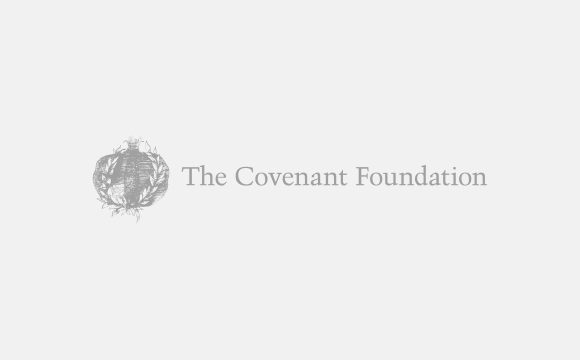
JCC Global MekoRock: Connecting Youth to the Global Jewish Community through Music
995
